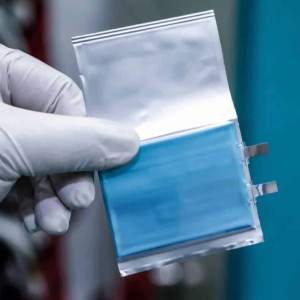It’s like 2 Teslas and 4 BYDs — China unveils the ‘battery of the century’ with shocking lifespan


China continues to set the bar in battery engine technology advancement. With the world looking to solve the energy crisis by introducing more sustianable alternaitves in order to prevent irreversiable climate damage, electrical engine technology continues to take center stage in the passnager vehicle industry. Thanks to advancements in battery engine technology in the past decade alone, these vehicles have been hailed as the future of what automobiles will look like.
The electric engine takes center stage
When it comes to sustainable and alternative engine developments from automobile developers and stakeholders, no piece of technology has been embraced as much as the electric engine.
Representing both a sign of the times as well as luxury and performance, nearly all major automobile developers today offer some type of electric model in their lineup, highlighting to consumers that they remain dedicated to a sustainable future and are employing their advanced engineering capabilities in order to do so. Representing a symbol of contemporary society, part of what has also made the electric engine so successful is due to the mass success of electric vehicle developer Tesla with its automobiles. Tesla successfully was able to take their advanced battery engine solutions and market them towards consumers not just as a sustainable alternative, but one that represents luxury and high-performance.
Now, however, the automobile industry has caught up, and Tesla is facing competition from across the globe when it comes to battery engine technology. Long holding the stake has the developer responsible for selling the most electric vehicles, companies such as BYD are now offering not only competitive electric vehicle technology to consumers, but are offering it at a lower entry price point compared to Tesla's luxury prices. As a result, ever reaching to stay ahead of the market, the company has now pivoted its focus towards other futuristic technologies.[1]
China unveils revolutionary new battery
While competition among Tesla and other automobile developers, such as China's BYD, continues to heighten, this other Chinese developer is set to overtake both Tesla and BYD thanks to their latest advancement in battery engine technology.
According to reports, researchers from China's Tianjin University's school of materials science have developed a lithium battery with an energy density of 600 Wh/kg. If these reports are true, this new development would be revolutionary for electric vehicles. It would mean that the battery is twice the density of Tesla's most advanced batteries (about 300 Wh/kg) and four times that of BYD's Blade (150 Wh/kg) advanced battery packs. A feat like this would allow for electric vehicles' range to increase as much as four times over without needing to be charged, decreasing consumer 'charging anxiety'.
While limited to a proof-of-concept development and not ready for full-scale production, the researchers are confident that their development will be seen in future electric vehicle developments.
The rise in automated technology
While electric engines continue to be advanced further, just when we think we have reached the peak of their development, other futuristic developments, which are growing alongside alternative engine solutions, include the very real reality of fully autonomous vehicles. Currently, autonomous vehicle technology is limited to still requiring a present and alert driver; however, companies globally are working towards eliminating the need for a driver. Tesla, in particular, has been championing this technology in order to separate itself once again from competitors[2] and remain a representation of the future of passenger vehicles. The company is currently piloting its first fully autonomous 'Robotaxis' in Austin, Texas, along with other autonomous vehicle fleets by developers such as Amazon and Alphabet.
Self-driving cars may very soon not be a thing of science fiction, but are set to become the next step in advancing passenger vehicles.
References
- ^ towards other futuristic technologies. (www.eldiario24.com)
- ^ separate itself once again from competitors (www.eldiario24.com)